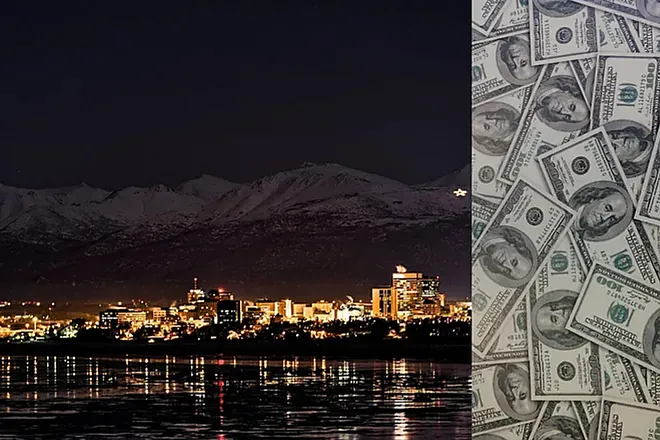Labor rights protect workers and ensure fair treatment on the job. In Alaska, specific laws help employees and employers understand their responsibilities and rights. Whether you’re an employee wanting to know your protections or an employer aiming to follow the rules, this guide covers everything you need to know about Alaska labor rights in a simple and clear way.

What Are Labor Rights and Why Do They Matter?
Labor rights are laws that make sure workers are paid fairly, treated respectfully, and kept safe at work. In Alaska, these rules are shaped by state laws and enforced by the Alaska Department of Labor and Workforce Development. Knowing your rights helps you stand up for yourself and ensures workplaces stay fair and safe for everyone.
Minimum Wage in Alaska
What Is the Minimum Wage?
As of January 1, 2025, Alaska’s minimum wage is $11.91 per hour. It’s set to rise to $13.00 per hour on July 1, 2025. This applies to all workers, even those who earn tips. Every year, the wage adjusts based on the cost of living in Anchorage, so it keeps up with rising prices.
Who Sets It?
The Alaska Department of Labor and Workforce Development sets the minimum wage, following the Alaska Wage and Hour Act. The state government creates the rules, and the Department updates the wage annually.
Are There Exceptions?
Some workers don’t get the minimum wage, like:
- Farm workers
- Babysitters or housekeepers
- Managers or professionals earning at least double the minimum wage for their first 40 hours each week
Overtime Pay Rules
How Does Overtime Work?
If you’re not exempt, you get overtime pay in Alaska for working more than 8 hours in a day or 40 hours in a week. Overtime pays 1.5 times your regular hourly rate. For example, if you earn $12 an hour, your overtime rate is $18 an hour.
Who Doesn’t Get Overtime?
Some workers are exempt, including:
- Managers or professionals with specific duties and pay
- Workers at very small businesses (fewer than 4 employees)
- Some farm or household workers
No “Comp Time” Allowed
Employers can’t offer extra time off instead of overtime pay. Overtime must be paid in cash.
Keeping Records
Employers must track your hours and keep records for 3 years. If they don’t pay overtime correctly, you can report it to the Alaska Department of Labor.
Final Paycheck Rules
When you leave a job:
- If you’re fired: You must get your final paycheck within 3 working days (not counting weekends or holidays).
- If you quit: You get paid on the next regular payday, at least 3 days after your last day.
This ensures you’re paid quickly for the work you’ve done.
At-Will Employment in Alaska
What Does “At-Will” Mean?
Alaska follows “at-will” employment. This means you or your employer can end the job at any time, for any legal reason, without warning—unless you have a contract saying otherwise.
Are There Limits?
Yes, you can’t be fired for illegal reasons, like:
- Reporting unsafe work conditions
- Filing a workers’ compensation claim
- Refusing to do something illegal
Anti-discrimination laws also protect you (more on that below).
Anti-Discrimination Laws
What’s Protected?
Alaska’s Human Rights Act says employers can’t discriminate or harass you based on:
- Race
- Religion
- Color
- National origin
- Age
- Disability
- Sex
- Marital status
- Pregnancy
- Parenthood
You’re also safe from retaliation if you report discrimination or safety issues.
How to Report It
If you face discrimination, contact the Alaska Department of Labor or a local group like the Anchorage Equal Rights Commission.
Whistleblower Protections
What’s a Whistleblower?
A whistleblower is someone who reports unsafe or illegal activity at work. In Alaska, the Whistleblower Act protects you from being fired or punished for speaking up about safety problems or illegal actions.
How to Report
File a complaint with the Alaska Department of Labor if you face retaliation for whistleblowing.
Workplace Safety
Who Keeps Workplaces Safe?
The Alaska Occupational Safety and Health (AKOSH) division makes sure workplaces are safe. Employers must train workers and fix hazards.
Reporting Safety Issues
You can report unsafe conditions to AKOSH without getting in trouble. They’ll investigate and help fix the problem.
Union Rights
Can You Join a Union?
Alaska isn’t a “right-to-work” state. This means you might have to join a union or pay dues to keep your job at some workplaces. You have the right to form unions and negotiate as a group under state and federal laws.
Child Labor Laws
Rules for Young Workers
- Ages 14–16: Need a work permit signed by a parent. Can only work from 5 a.m. to 9 p.m., up to 6 days a week.
- Under 14: Limited to jobs like newspaper delivery, babysitting, or acting, with strict rules.
Tipped Minors
Tips don’t count toward the minimum wage—they’re extra and belong to the worker.
Background Checks and Drug Testing
Background Checks
Employers can check your background but must follow federal rules and tell you first. Some jobs, like teaching or childcare, require these checks.
Drug Testing
Alaska doesn’t require drug tests, but employers can do them to keep workplaces drug-free.
Recordkeeping Rules
Employers must save payroll records, timecards, and wage details for at least 3 years. The Alaska Department of Labor can check these records to ensure fairness.
Types of Leave
Required Leave
Alaska law provides leave for:
- Jury duty
- Voting
- Military service
- Crime victims
Sick or Family Leave
There’s no state rule for paid sick leave or family/medical leave—only federal laws like FMLA apply.
Breaks
- Adults: Short breaks (20 minutes or less) are paid; meal breaks (30 minutes or more) can be unpaid.
- Minors: Must get a 30-minute break if working over 5 hours straight.
Unemployment Insurance
If you lose your job through no fault of your own, you might get $56–$370 per week for 16–26 weeks. You need to have worked enough and be actively looking for a new job to qualify.
Recent Changes in Alaska Labor Rights
- 2018: Alaska stopped allowing lower wages for workers with disabilities.
- 2024 Proposal: A ballot measure suggested raising the minimum wage to $15, adding paid sick leave, and banning forced anti-union meetings. (Check the latest updates on this!)
These changes show Alaska is working to improve worker rights.
Where to Get Help
Contact the Experts
- Alaska Department of Labor and Workforce Development: Call (907) 269-4900 or visit labor.alaska.gov.
- Legal Help: Try Alaska Legal Services Corporation or free clinics from the Alaska Bar Association.
Alaska labor rights cover everything from fair pay to safe workplaces. Knowing these rules helps employees stand up for themselves and employers stay on the right side of the law. If you have questions or need help, reach out to the Alaska Department of Labor or a legal expert. A fair workplace benefits everyone!







